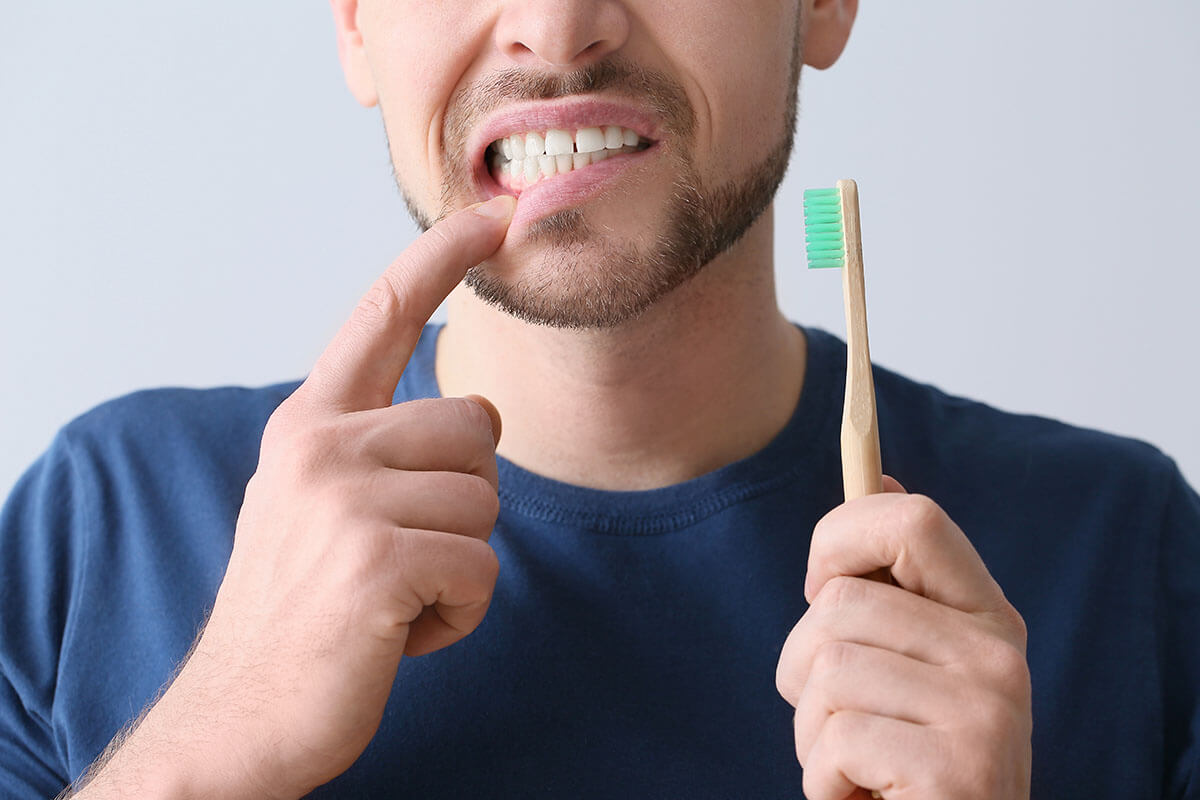What is enamel? Tooth enamel covers the surfaces of all your teeth. It provides protection and insulation. This thin covering is incredibly hard and helps ensure the health of your teeth. However, enamel can also be susceptible to chips, cracks, and decay. Enamel decay can lead to cavities, sensitivity, and pain. Knowing how to spot the early warning signs and symptoms of enamel decay is one of the best ways to protect your teeth.
Signs and Symptoms of Enamel Decay
If you’re experiencing enamel decay or erosion, the symptoms can vary depending on the severity of the decay. Some common symptoms of enamel erosion may include:
- Sensitivity – You might experience pain when eating or drinking hot, cold, or sweet foods or beverages
- Indentations – You could see small dents on the surface of the tooth as a result of enamel erosion
- Discoloration – Dentin, the material of the tooth below the enamel, has a yellow tint, and when enamel erodes, the dentin can become more visible
- Rounded edges – The edges of your teeth experience the most wear and tear and can begin to break down as the enamel decays
Finally, cavities can be a sign of enamel decay. As enamel erodes, the harmful bacteria in plaque and tartar may reach the dentin and possibly the pulp of the tooth. Cavities, which are small holes in the tooth caused by decay, can be easily treated if they are detected early. However, left untreated, cavities can lead to painful abscesses or infections. Regular dental exams can help you avoid root canals or other dental procedures.
What Causes Enamel Erosion?
Enamel decay and erosion may be the result of both environmental factors and oral health habits. What you eat and drink, how you brush your teeth, and even certain medications can impact the condition of your enamel.
For example, drinking soda or other sugary beverages can leave a coating of sugar on your teeth. When the bacteria in your mouth encounters sugar, it can form acid that eats away at enamel.
Drinking plenty of water can help wash away some of the sugars in your mouth throughout the day. It can also aid in saliva production. Saliva can help prevent decay by balancing the acidity in your mouth and washing away food particles.
Gastrointestinal issues and acid reflux can also factor into enamel decay. Frequent vomiting can bring stomach acids up that can be highly corrosive. Certain medications, like antihistamines and aspirin, can also contribute to enamel erosion.
Friction and normal wear and tear can also play a role in the health of your teeth. Grinding your teeth when you sleep or brushing your teeth too hard may result in the breakdown of your enamel.
How can you protect your enamel? Drink plenty of water, avoid sugary foods and beverages as much as possible, and practice good oral health habits. Brush with a soft-bristled toothbrush and toothpaste that contains fluoride. Floss daily to remove food particles and plaque from hard-to-reach areas. And visit your dentist regularly for cleanings and exams. Catching enamel decay early can help you avoid painful or more complicated oral health issues down the road.
Keep Your Teeth Healthy at Columbia Smiles
If you’re experiencing any of the symptoms of enamel decay, make an appointment at Columbia Smiles today. Our family dentist provides cleanings, exams, and a variety of dental services to help keep your teeth and gums healthy.
Reach out to our team at 410.690.4855 or connect with us online to learn more. If you’re looking for compassionate, high-quality care from a dental practice that Howard County residents have trusted for more than 35 years, Columbia Smiles can help.







